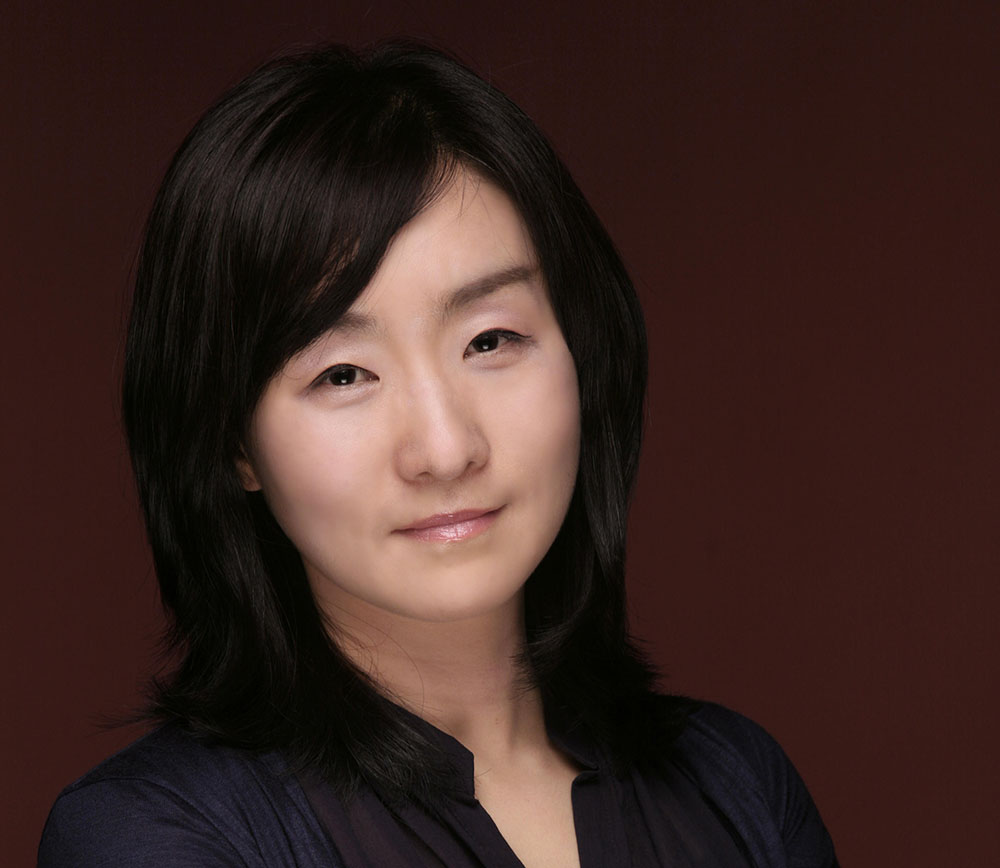
Shinuh Lee’s career as a composer started when her trio composition, Space, was selected at the ISCM World Music Days 1991 in Zurich. Lee studied composition with Sukhi Kang at Seoul National University and later with Michael Finnissy at the Royal Academy of Music (RAM) in London. Her work Analogy for oboe and ensemble written in her first year at the RAM won the Royal Philharmonic Society Prize for Composers 1992. Her other works were also selected for the Musical Times Composers’ Competition, Cornelius Cardew Composition Prize, and Gaudeamus International Composers’ Competition, and was made known in Britain as well as Europe. In 1997, her orchestral piece Psalm 20, based on research on ancient Hebrew music and the Book of Psalms, was selected at the Leonard Bernstein International Jerusalem Composing Competition, and premiered by the Jerusalem Symphony Orchestra. Its revised version was premiered by the BBC Philharmonic Orchestra at the ISCM World Music Days 1998 in Manchester.
After returning to Korea, Lee’s compositions, including Invisible Hand (2000/2002), Song of Joy (2001/2003), and An Open Door (2004) demonstrates her musical goal transiting away from acoustic and phenomenal tendencies of late 20th Century modern music in Europe, towards humanitarian and religious themes such as the human mind and spirit, as well as sin and salvation.
In 2006, her Choral Fantasy manifests her will to explore issues of human sin and salvation through music in a profound way. Comfort, comfort my people, consisting of ten movements, deals with biblical messages of Isaiah and Romans, and are executed through various experimental techniques and styles. These include a quote of one of Bach’s Chorales juxtaposed with tonal, modal and atonal transformations of Lee’s own chorale melody; a total-serial transformation; and poly-chordal and poly-stylistic approaches. This work was realized in several editions and genres, with its chamber music version performed at the Kumho Art Hall in 2008. Her work The Screwtape Letters, accompanied by lighting and installation art, was performed at the Seoul National University Museum of Art in 2009. Its American performance tour and New York Carnegie Hall performance in 2013 and 2014 was accompanied by pianist Hyojung Huh. This work was later published in a piano album, with No. 2 The Collar (2013) and No. 3 Alleluia (2010/2013) featured under the Studio 2021 and Dux labels. Her first violin sonata, Psalm Sonata, was also released by Dux in 2014.
Shinuh Lee’s works have been performed by many soloists, ensembles, and symphony orchestras. Her Clarinet Concerto, commissioned by Seoul International Music Festival, was premiered by Michel Lethiec and the Korean Chamber Ensemble conducted by Grzegorz Nowak. Lament for clarinet and string quartet was also premiered by Lethiec and Ensemble Opus at the Casals Festival in France. From 2014 to 2016, Lee was also invited to be part of a composition faculty for the Young Artists Summer Program of the Curtis Institute of Music. She was commissioned to write a piece for the semi-finalists of the Seoul International Music Competition in 2011 and 2015.
Shinuh Lee obtained her Diploma from the Royal Academy of Music, and MMus and DPhil from the University of London and Sussex University respectively. She was appointed as a Professor in Composition at the College of Music, Seoul National University, teaching composition and music analysis. She has also worked as an Artistic Director to Studio 2021 since 2003.